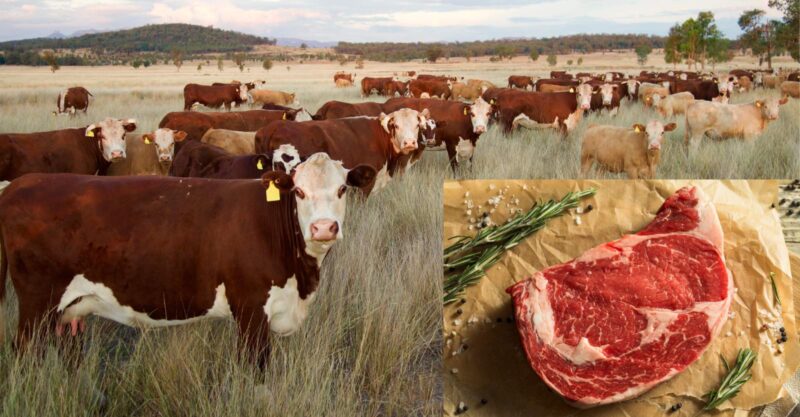Why Grass-Fed Beef Is the Better Choice for Your Health
Choose 100% Grass-Fed Beef for Better Nutrition and Reduced Chemical Exposure
While all beef is nutritious, 100% grass-fed beef stands out for its enhanced nutritional benefits and lower risk of exposure to antibiotics, growth hormones, pesticides, and endocrine disruptors.
In recent years, grass-fed beef has gained significant attention as a healthier and more sustainable alternative to conventional grain-fed beef. Unlike their grain-fed counterparts, grass-fed cattle are raised on a natural diet of grass and forage, contributing to meat that boasts a higher nutritional profile and fewer unwanted additives. Choosing grass-fed beef is not just a decision for personal health; it supports eco-friendly farming practices and better animal welfare. This guide will explore the numerous benefits of grass-fed beef, including improved nutrient density, reduced exposure to harmful substances, and positive environmental impacts.
Key Takeaways:
- Enhanced Nutrition:
Grass-fed beef contains higher levels of omega-3 fatty acids, vitamins E, riboflavin, and thiamine, along with conjugated linoleic acid (CLA), which supports cancer prevention and fat metabolism. - Reduced Chemical Exposure:
Grass-fed cattle avoid the high levels of antibiotics, pesticides, and growth hormones prevalent in grain-fed systems, offering cleaner and safer meat. - Hormonal Health Benefits:
With lower levels of phytoestrogens and endocrine-disrupting compounds, grass-fed beef is better for maintaining hormonal balance compared to grain-fed options. - Environmental Sustainability:
- Efficiency Through Better Management: Grass-fed farming, managed with ecological principles, can boost livestock carrying capacity by 50%-70% compared to unmanaged grazing. Multi-species grazing, combining cattle with sheep, goats, or even poultry, optimizes ecological niches and resource use.
- Underutilized Agricultural Land: Introducing cover crops and grazing livestock on millions of idle farmland acres between harvests can expand pasture availability, improve soil health, and make agriculture more sustainable.
- Focus on Quality Over Quantity:
Global food production already exceeds caloric needs for the population, highlighting the need to shift from maximizing quantity to enhancing quality, sustainability, and food distribution infrastructure. - Improved Animal Welfare:
Grass-fed cattle live in open, natural environments, consuming biologically appropriate diets, avoiding the stress and health risks of feedlot conditions. - Economic Perspective:
While grass-fed beef costs more due to longer production timelines and regenerative farming investments, these expenses reflect the true cost of sustainable and ethical meat production. - Balanced Choices for All Budgets:
Incorporating grass-fed beef into your diet, even occasionally, can offer health and environmental benefits. Budget-friendly cuts like ground beef or tougher cuts (ideal for slow-cooking) provide value and robust nutrition. Conventional beef remains a viable option for its essential nutrients when grass-fed isn’t accessible.
Choosing grass-fed beef supports a healthier you, a more sustainable planet, and farming practices that respect animals and ecosystems alike.
Read the full article by Dr. Joseph Mercola for CHD’s The Defender.
For more information on regenerative agriculture and regenerative organic agriculture, visit:
Sustainable Farming with Amanda Forbes and Josh Bauman from Ontario’s Greener Grazing
How Can Regenerative Organic Agriculture Help Canada?
Regenerative Organic – One Standard to Rule Them All, or Just Another Label?
**************************************************************************************************************************************************

